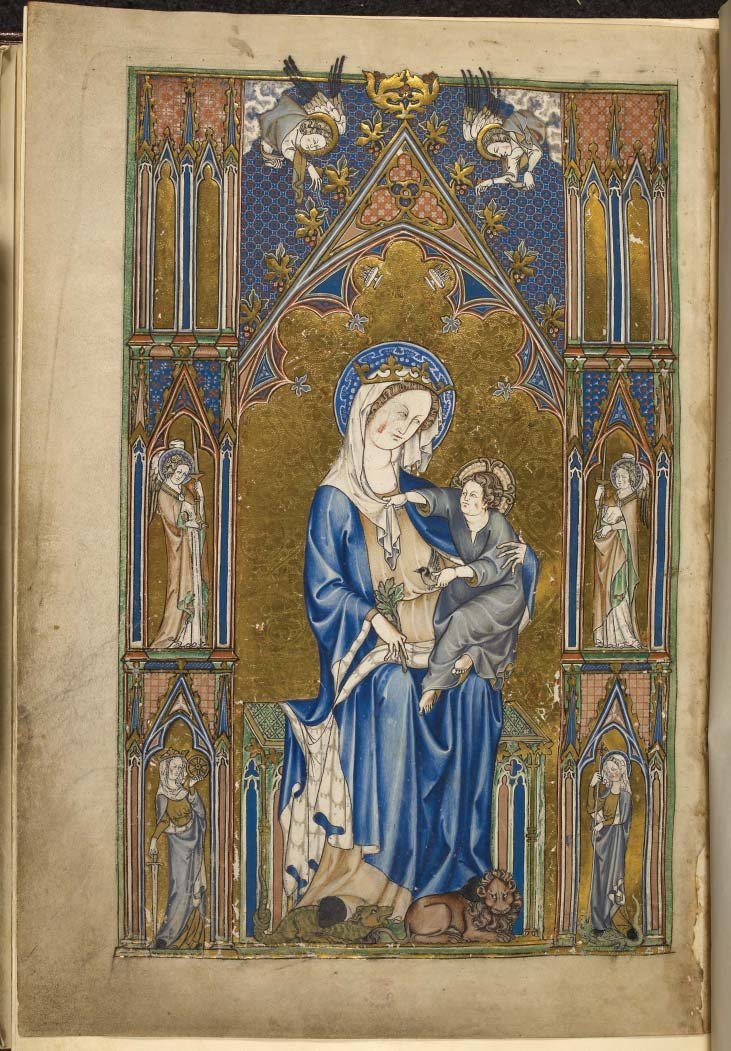Robert de Lisle (1288-1344)
In my resaerch into the origin of the medieval wall paintings found on the North wall of St Mary's Belchamp Walter the similarilty between the images depicted and those found in the de Lisle Psalter cannot be ignored.
In addition to the similarity of the paintings of the Virgin Mary in
St. Mary's Belchamp Walter and St. Mary's Great Canfield would suggest that they were painted by a common hand.
The medieval histories of both Belchamp Walter and Great Canfield share a connection to the de Veres,
Earls of Oxford.
The Wikipedia page says:
with respect to the de Lisle Psalter:
He was the owner of an illuminated manuscript, the Lisle Psalter, now Arundel 83 in the British Library,
given by him to his daughter Audrey, a nun, who stipulated that after her death it should go to her sister,
Aubrey, also a nun, and after Aubrey's death to Chicksands Priory, which had been built on land given by
the de Lisle family near their manor at Campton, Bedfordshire.[9] The manuscript was owned by the
antiquary Lord William Howard (d.1640), younger son of Thomas Howard, 4th Duke of Norfolk (d.1572),
who was likely responsible for binding the Lisle Psalter with the Howard Psalter and Hours.
The connection to Chicksands in Bedfordshire would also suggest a connection to the de Beauchamps.
Top
The marriage of de Lisle to Mageret de Beuachamp
He married, about 9 July 1301, Margaret de Beauchamp, daughter of Walter de Beauchamp (d. 16 February 1303)
of Alcester, Warwickshire, by Alice de Tony, daughter of Roger de Tony, by whom he had three sons and four daughters.
Arthur Plantagenet, 1st Viscount Lisle - 1533-1540 in Calais - Pre Armada
This is much later. The de Lisle family name still needs to be researched.
The Lisle Papers are the correspondence received in Calais between 1533 and 1540 by Arthur Plantagenet, 1st Viscount Lisle (c.1480-1542),
Lord Deputy of Calais, an illegitimate son of King Edward IV and an uncle of King Henry VIII, and by his wife, Honor Plantagenet,
Viscountess Lisle (born Honor Grenville and formerly the wife of Sir John Bassett (d.1529) of Umberleigh in Devon), from several
servants, courtiers, royal officials, friends, children and other relatives.
They are an important source of information on domestic life in the Tudor age and of life at the court of Henry VIII.
